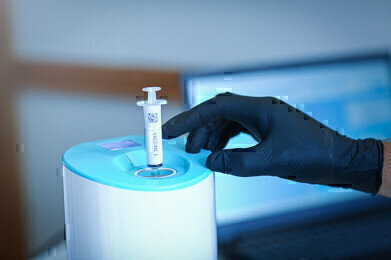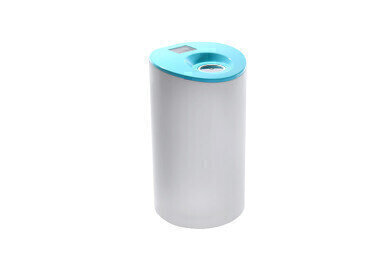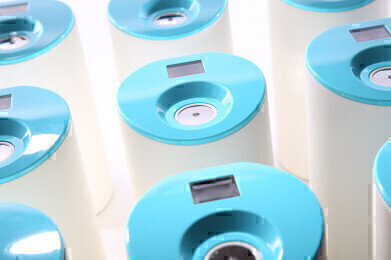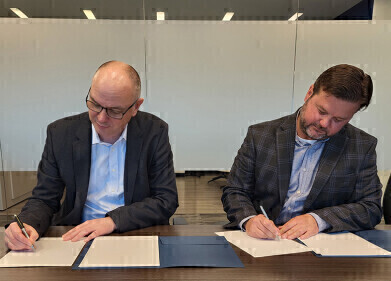Waste Management
Helping NHS carbon reduction strategy reduce carbon emissions by 95%
Apr 08 2022
NeedleSmart is at the forefront of helping the NHS radically reduce CO2 emissions in its clinical waste disposal by a staggering 95% as part of its Carbon Reduction Strategy, saving £10s of millions in clinical waste destruction.
NeedleSmart is collaborating with the NHS, facilitated through the NHS Supply Chain innovation route, to drive a campaign forward to minimise single-use plastics and associated packaging. As of 1st April, and as part of the Government’s recycling policies, all plastic packaging must contain 30% recycled material or be subject to a levy of £200 per tonne.
The NeedleSmart technology is also part of an innovative programme to reduce and eradicate 100,000 needlestick injuries (NSI), which affect all healthcare workers across the NHS. This initiative alone will help save the NHS and its trusts more than £127 million each year.
The Knowsley-based company has designed and developed a range of products, including the NeedleSmart Pro (NS PRO) a world-first in safe needle destruction and disposal. The ground-breaking technology is being pioneered in a partnership with the Innovation Centre at Alder Hey Children’s Hospital and piloted with a number NHS trusts across England as part of the NHS’s carbon reduction and sustainability programme.
As of 5th January 2022, the global COVID-19 vaccinations programme had delivered 134 million vaccinations in the United Kingdom, 513 million in the USA and 1.4 billion in India.
In the UK alone, using the NeedleSmart technology purely in relation to the vaccination programme would have saved the NHS 15,132 tonnes of CO2 annually.
This is equivalent to:
- 15,000 flights from London to New York
- 66 million miles in a family car
- 45,000 square metres of polar ice caps melting
- 39,600 trees storing atmospheric CO2 each year.
NS PRO destroys a contaminated hypodermic needle in a sealed chamber in just six seconds. The NeedleSmart device heats the needles inserted into the chamber to 1,300 degrees celsius, which will kill potential harmful pathogens, viruses and bacteria adhering to the needle. Within seconds, the needle is compressed into a tiny cold ball and released from the NS PRO device as a safe sphere of metal at the tip of the syringe.
This not only safely destroys the needles, converting them into safe clinical waste and allowing for recycling, but also hugely decreases the amount and level of clinical waste disposal, along with the huge carbon emissions associated with disposing of that clinical waste and its incineration. Previously, the entire needle would have had to be disposed into a plastic sharps box, which carried a limit on how many intact needles could be disposed of.
Now the clinical waste can be split into two parts, with the molten metal ball part of the clinical waste recycled as safe waste and the plastics recycled into the system. This represents a huge advancement for the NHS – which is one of the UK’s biggest producers of carbon – in reducing its carbon emissions and recycling its clinical waste.
The NS PRO device can help the NHS save money and cut costs in a number of ways, including:
- NSI are estimated to cost each NHS trust £500,000 each year*** and an estimated £127 million across England ****.
- The NS PRO device will play a major role in significantly reducing and eradicating the 100,000 NSI that occur every year.
- NeedleSmart aims to offer the use of a 96% recycled cardboard clinical waste box (when NS PRO is used) as a viable alternative to the current single-use sharps bins.
- The Government plans to add a plastic tax of 20% per tonne on single-use plastic packaging as of April this year, meaning the NS PRO and its clinical waste box presents a real reduction opportunity in this tax levy to the NHS.
NeedleSmart CEO and smart MedTech disruptor, Cliff Kirby, said:
“By adopting the NS PRO device, the NHS will enjoy a whole host of efficiencies in cost-savings and reduction in carbon emissions, in addition to crucial safety aspects.
Using the NS PRO for the safe disposal of hypodermic needles can radically reduce the 100,000 needlestick injuries that occur each year to surgeons, doctors, clinical staff and hospital porters.
But the even greater capability for reducing carbon emissions lies in the fact that using the technology means we can reduce the carbon emissions that the NHS produces by 95%. Using the NS PRO to safely dispose of the needles and put these into our biogenic carboard disposal boxes has major savings. The use of the NS PRO offers substantial savings to the NHS and the environment.
This means more clinical waste can be stored in each NS PRO disposal box, which reduces the number of trips to empty and dispose of clinical waste. It also reduces the single use of plastics waste and allows for greater recycling of non-hazardous waste materials against the existing approach of incineration, which creates more emissions with carbon pollution. Finally, it reduces carbon emissions of associated logistics – be that manufacture or disposal."
Reference Points
*Survey conducted by SERMO. 510 actively practicing UK, US, German, Swedish, Japanese and Australian surgeons responded to a survey on the importance of surgical gloves. April 2019.
** A review of sharps injuries and preventative strategies, Journal of Hospital Infection, 2003
*** Needlestick Injury in 2008, Royal College of Nursing, 2008
**** NHS statistics, facts and figures. July 2017. There are 254 NHS Trusts in the UK, so the estimated cost is calculated to be £127m (£500,000 x 254)
Events
IWA World Water Congress & Exhibition
Aug 11 2024 Toronto, Canada
Aug 25 2024 Stockholm, Sweden and online
Sep 03 2024 Mexico City, Mexico
Sep 03 2024 Mexico City, Mexico
Sep 03 2024 San Diego, CA, USA















